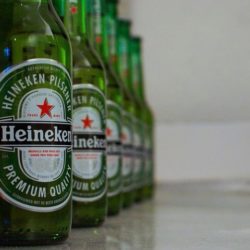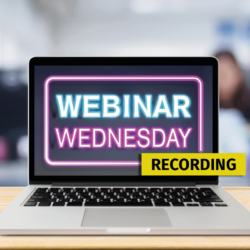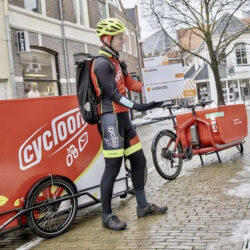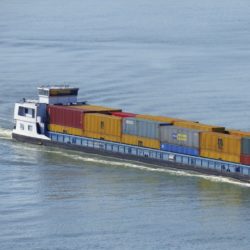Sustainability a crucial success factor for Heineken

Brewing giant Heineken regards sustainability as a crucial factor for success, according to a presentation by the company during Districon’s seminar in Amersfoort, the Netherlands, on 20 June. The day revolved around the link between sustainable supply chains and better logistics performance, as summed up by the theme of the seminar: ‘Sustainable supply chains: business or busyness?’.
By Marysa Vos
How can companies make their supply chains ‘greener’ without losing their competitive edge? And how can improving the sustainability of the supply chain and real estate open up opportunities in terms of logistics performance? Leading firms and pioneers such as Heineken and BigMile presented details of their sustainability-related experiences during the seminar, which covered all the main aspects of sustainability in logistics: from sustainable construction and expansion to sustainable transport. But how important is sustainability in reality, and how are companies approaching it?
Through its ‘Brew a Better World’ programme, Heineken – which has been leading the way in sustainable logistics for years – provides a framework for its efforts to have a positive impact on the world such as by reducing its water consumption, generating its own renewable energy and supporting vulnerable communities. “And that’s necessary, because sustainability is no longer just a policy issue; consumers are increasingly demanding it too,” said Maarten Cuijpers (pictured), Global Lead Logistics and Sustainability at Heineken Global.
The younger generation
Young people are the key target group for Heineken, and research shows that they are the group most likely to regard sustainability as important. In fact, in the 20-30 age group, 72% are willing to pay more for a sustainable product. “So our beer must be seen as a sustainable product in order to continue to appeal to them,” added Cuijpers. The beer brand is therefore working hard to ‘close the loop’ and recycle its waste products.
Heineken has also recently launched a pilot project in which it is the first company to transport cargo on electrically powered inland barges, plus it is using electric trucks for last-mile distribution. This approach is paying off: “By pioneering the use of electric transport and green warehousing, among other things, we’ve already succeeded in reducing our worldwide logistics footprint by 13% since 2011,” stated Cuijpers.
Climate agreement
It is no secret that Dutch companies will need to drastically reduce their greenhouse gas emissions if the Netherlands is to achieve the objectives set by the climate agreement: a 49% reduction by 2030 compared with the levels in 1990. But in order to reduce their carbon footprint, companies first need to know their current situation. BigMile is a self-service platform that gathers and combines data from shippers and logistics service providers to give companies insight into their carbon emissions. “It’s then possible to overlay the data from different companies to reveal the potential for improvement between trade partners,” stated Nico Anten from BigMile. He went on to explain that, if they use the right techniques, companies can easily and affordably improve their performance – in terms of both competitiveness and sustainability.
According to Erwin Faber, Managing Director of Districon, we should no longer try to solve problems in the traditional manner. “We need to start with a solution and think about how we can ensure it can be applied to multiple problems,” he said. “That way, rather than having just one solution, you have a platform that solves multiple problems,” he said as he brought the day to a close.










